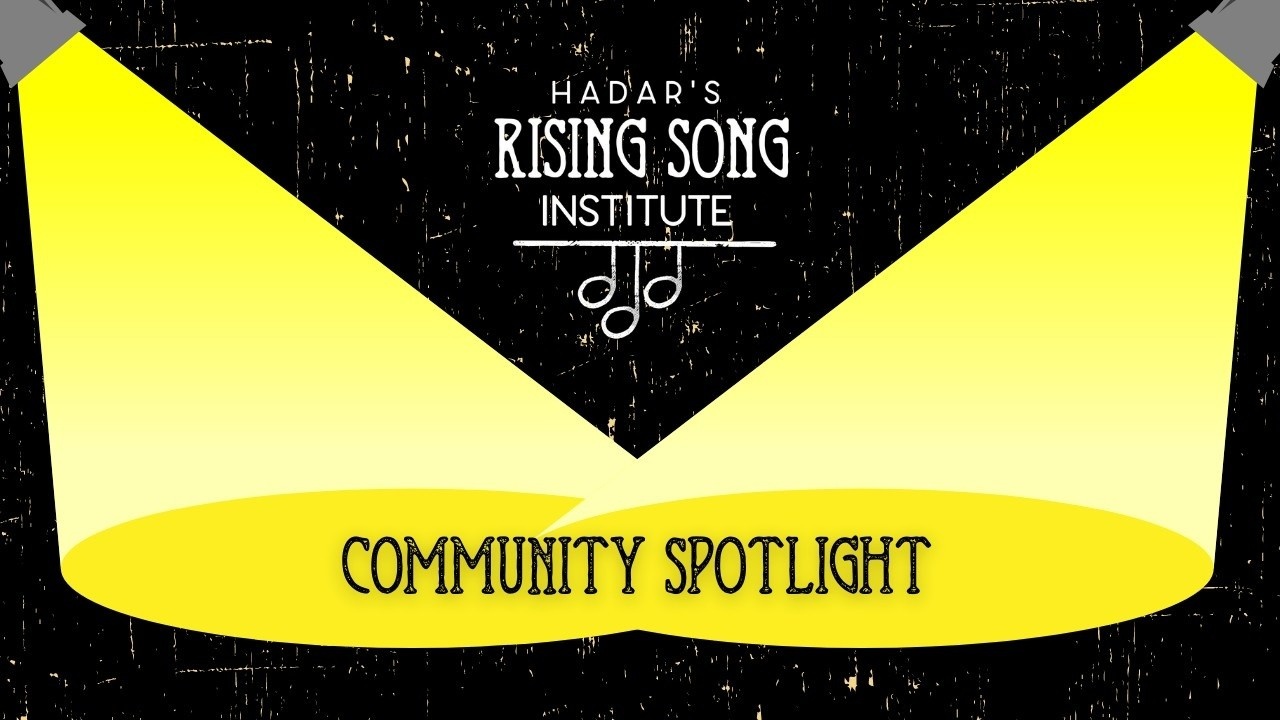
Rising Song Community Spotlight: Kenny Steinman
Jan 21, 2022Interview with Kenny Steinman by Liz Feldman, December 2021
Please describe your background and what your current Jewish community looks like.
Outside of home, my Jewish education began at a Workmen’s Circle school in Brookline, Massachusetts. I think my folks chose it because it was close to home, so my brothers and I could easily walk there. It felt pretty old school – some teachers had numbers tattooed on their forearms and whacked your desk with a ruler if you weren’t paying attention. So my folks joined Temple Sinai (Reform) when I was in 6th grade. But it was really when I was in college, when there weren’t many Jews, that I became more identified. I came to appreciate the intellectual stimulation, the big questions, the traditions and sense of humanity, and being part of a community. Slowly, I became more ritually observant over time, and am still evolving; I suspect I’ll always be “not yet” fully shomer mitzvot.
I love praying but lack any musical training. Still, there may be some musical genes in the family: my mother's father played with the Baltimore Symphony, his father was known (in the family) for his singing, and his father was a meshorer with Nissi Beltzer, a prominent cantor in Ukraine. Happily, our sons love singing too!
My wife, Robin Judd, and I met in grad school, and we came to Columbus 22 years ago to teach at Ohio State. In that time, we’ve been in the traditional egalitarian world as members of Conservative and Orthodox shuls. I’ve been very involved in synagogue life, reading Torah, leading services and serving on various boards. Yet, I also value non-institutional work, having helped start an independent minyan, visiting residents in a local assisted living facility, and organizing projects to support refugees and other new Americans. The Wexner Foundation has also shaped our Jewish community. We’ve grown close with many of the staff and their families. Moreover, I (Heritage Program), my spouse (Graduate Fellow) and our sons (Service Corps) have all benefited from their support.
You've painted a lovely picture of your Jewish life! How did you find your way to Joey Weisenberg, Rising Song and Hadar?
I credit YouTube! Around 2014, I came across Joey Weisenberg’s “Sasa Niggun” with the Hadar Ensemble. I thought, “Wow this is great! Who are these people, and do they have Kool-Aid I can drink?” Later that year, I became president of the shul and arranged to bring Joey in for a weekend. I'd always been interested in improving our lay-led prayer experience and admired his work. The weekend was wonderful! Some of the community loved it and found inspiration personally, but unfortunately it did not change our shul’s practices very much.
I have continued to be impressed with Joey and Rising Song, both in terms of the content they offer and their general menschlichkeit. The one Rising Song Intensive I went to in 2019 taught me a lot. I just so admired how Joey carried himself as a leader. So often in these charismatic
musical circles it's easy to fall into a guru dynamic. The fact that he didn't promote himself, I think, took some active work on his part and on the part of others. I admire that and have tried to learn from Joey’s example as a leader: about how not to have it be all about you, but rather about community.
So at the 2019 RSI gathering, you and I were there together! Could you talk a little more about your own development in terms of leading services—what you've led and how that's been for you, in the context of your shul and your community?
One thing I like about synagogues versus minyanim is their diversity in terms of age, education, and worldview. We don't all have to be best friends, but there's a kind of caring about one another that develops by seeing the same folks week after week and year after year. Sociologists call these “weak ties” and I’ve come to value them for helping us build an authentic community.
Of course, with this diversity come different expectations of what prayer is and should be. When leading, I try to balance two motivations. First, to follow what I find personally inspiring. People can sense a certain authenticity when I’m really into what I’m saying or singing. Second, I try to recognize that what I may want to do is not going to work for everyone. Tunes that I may find stale still may offer others familiarity and comfort. So there’s a balance.
Even among our corps of prayer leaders, people want different things. How do we value that diversity? I'd love to be able to cultivate a community where we can support one another, where people can offer feedback in a thoughtful, respectful, supportive way. I’m one of the voices trying to argue for a more thoughtful sort of approach to recognize that we have different lay leaders who have different backgrounds and different abilities.
For me personally, I continue to try to learn new skills, like leyning part of Eicha a few years ago. I haven’t led High Holiday services yet—I’m interested, but I also want to keep a low profile and make room for other folks to do stuff. Also we had a wonderful JTS rabbinical student leading this past year, so I wasn’t needed!
What questions do you have for other people in the broader Rising Song community?
I have many questions about building a davening community.
There are political and organizational issues involved in having a group of lay leaders who are serving a broad, diverse congregation. We want to be inclusive and encourage people to learn yet also have some quality control.
And I would love to be able to have an opportunity to learn, to really explore with somebody who feels like their shul has figured out how to do it. I think back to one of Hadar’s independent minyanim conferences as being really helpful in this regard. Hadar has many people with a lot of experience and ideas in this area—Rabbis Elie Kaunfer, Ethan Tucker and others. I’m sure the broader Rising Song community has lots more people I could learn from and with.
Also I’d like to ask you all these questions, too!
Thanks so much for doing this!
Thank you for the opportunity! Same time next week?
This is one of hundreds of in-depth videos where Joey teaches traditional nusach (prayer chant), sings his favorite spiritual tunes (nigunim), explores the musical dreamscape of the Jewish sages, and explains how to conduct impactful prayer services and foster grassroots communal song.
Study the Torah of Music.
Lead prayers for Shabbat and High Holidays.
Connect with the virtual community.
Stay connected!
Sign up here to get updates about new music and offerings from Joey Weisenberg and Hadar's Rising Song Institute.
We hate SPAM. We will never sell your information, for any reason.

